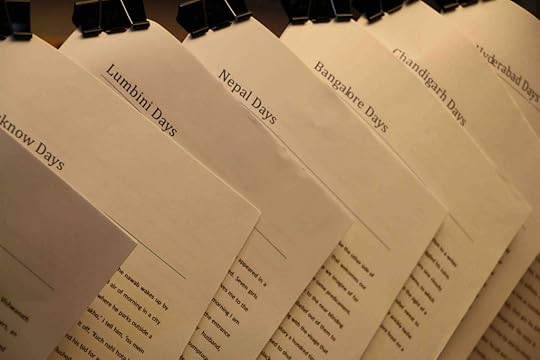Why writing is not for readers and writers alone have to wring their stooping necks.

Friends, reviewers, bloggers, lend me your eyes; I come to bury books, not to exhume them.
After my debut novel went into print in March, I realised that the dialogue in the first sentence of the opening chapter, ‘Please lower your tone, you are exciting my loins,” could be linked to Vladimir Nabokov’s 1955 classic novel Lolita.
The first sentence of Nabokov’s book is, “Lolita, light of my life, fire of my loins.”
I thought this would sound great in interviews once the reviewers had caught on. That the narrator of my story wanted to extinguish the heat rising out of his pants in the same manner as Nabokov’s paedophile narrator Humbert Humbert who could not control his inflamed tumescence at the sight of a 12-year-old girl.
Sadly, no one noticed the reference because barring one newspaper (and a handful of bloggers), no one read the book. If you have, please raise your hand and be counted as a casualty.
Nabokov’s book is about a middle-aged man posing as a writer. The central character of my book is an unnamed narrator who aspires to become a writer. Nabokov’s character is shown as an expert on French literature who refers to the works of such writers as Charles Baudelaire, Marcel Proust, Prosper Mérimée and François Rabelais.
In the review that my book managed to get, the reviewer wrote, “He [author] approaches this travelogue and coming of age with the flair of a Baudelairean flâneur,” perhaps inferring from the many quotes the book’s narrator inserts from French literature.
The similarities between Lolita and Lean Days end there. Or if you want to call it my delusion of trying to compete with Nabokov.
The novel was written without any clear outline of structure, forget form, or even the remotest reference to great writers. The fifth chapter was written before the first, so as to give you an indication that the process was as confusing as writers like to necessitate.
My novel ends with the quote, “A writer may never write if he cannot finish reading. A day of unusual curiousness, as I watch a woman labour over her notebook at a coffee shop across the sea. Because I am not writing, I am not to be taken aback if I accidentally discover that what she is writing is what I have been struggling to say. It is precisely through this kind of shuffle that we have had our stories told.”
This could allude to what bibliophiles Umberto Eco and Jean-Claude Carrière discuss in their book This is Not the End of the Book, about the feasibility of writing books in the hyper textual age we live in.
And yet, no one reads my book in the same light as I do. This is not to say that there is no one out there to catch the references, but yes, there is no one out there to do it until I say it so myself. Because reading is as rare an art to cultivate as mastering the fugu to serve in a restaurant.

In This is Not the End of the Book, the two gentlemen discuss the moderate overwhelming effect of a book and the immense overwhelming of the Internet. Everyone is reading more online, thereby diminishing the chances of a book getting picked up for something that is probably immaterial.
Since my book’s release two months ago, I have been constantly persuading friends to read it, reviewers to write about it, and bloggers to gush about it. It is a task like no other that I have ever had to tackle in life.
The 10 things I have learnt about writing since I got published (including listicles-as-easy-reading-option).
1) Friends will support online, won’t buy the book offline.
2) Friends will expect free & signed copies.
3) They will not read excerpts online because it is not the entire book.
4) They will wait for reviews because they rely on reviews, not their own sense of judgement.
5) Reviewers will ask for a free copy and procrastinate.
6) Friends will wait for the delayed reviews. Because it is easier if someone else has read the book for them.
7) If I cannot rely on friends to read and spread the word (online at least), who should I beg?
8) Reviewers? They are often (in all cases) too depressing to sleep with.
9) Flood bloggers with free copies. Not that they are literate, like many so-called supportive friends, but because reviewers are too high-minded to acquiesce. Bloggers are beginners who just want to show-off to other bookgrammers how pretty their photo-filter skills are (and now I have earned their ire as well). Millennials.
10) Write another book. Because none of them can do what I am doing, inter-alia, reading.
 Lean Days chapter headings
Lean Days chapter headings



